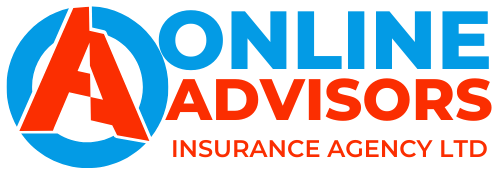
- Home
- CLAIMS Center
Guide to efficient Claims Processes In Kenya
WE OFFER PROFESSIONAL INSURANCE CLAIM ADVICE AND FOLLOW UP
Insurance Claim involves the processes of pursuing compensation for an insured loss. Insurance claims can be pursued by the insured or other people affected by the insured’s property or actions; (these other people are referred to as third parties).
[CP_CALCULATED_FIELDS id=”10″]
General Claim Procedures
- Notification done either by letter, fax, telephone, e-mail, personal visit, company’s website and social media sites
- Immediately Report to nearest police station incase of theft, fire or accident claim. (Get Police Abstract)
- Verbal reporting should be followed by written communication.
- Late notification should be supported
- Claims reported at the branch are registered and forwarded to head office
Upon receipt the claim is then registered within the Insurance Claims system capturing the following information:
• Details of the insured, policy number and period.
• The date of loss and date of notification.
• The nature and location of loss
• The place where the loss occurred.
• Estimated Loss/reserve guided by the Reserving Guidelines
• Acknowledgement contains claim number, service provider appointed and
list of requisite supporting documents
Service providers are as follows;
MOTOR CLAIMS
- Motor assessors – Material damage claims/partial theft
- Investigator – Motor theft and fire damage
- LPO issued to windscreen fitters – Windscreen and glass damage
NON MOTOR CLAIMS
- Loss adjusters – Fire, flood, theft, engineering, BI and other
complicated claims - Investigators – Bid and complex claims with suspected fraud
- Doctors – Second medical review for injuries
• Assessment for all accidents are done at the insurance company’s assessment center or selected garage.
• Appointment of assessors, submission and review of reports, issuance of Repair Authority, Cash In Lieu and total loss offers are all done by the insurance company.
1. Cash in Lieu
Cash In Lieu is done following the Insured’s request, unavailability of parts or the insured being uncomfortable with the garage allocated by the insurer. The insured is given an upfront amount (often 50% of the repair cost) to commence repairs and balance after reinspection confirming repairs have been completed. NB: Cash In Lieu payments are lower than actual assessors repair estimate since the insurance company reduces 20% of repair cost (markup) and 16% VAT charge.
2. Issuance of Repair Authority
Repair authority is issued to a garage within the insurance company’s panel to commence repairs after approval of assesment report.
3. Constructive Total Loss
Constructive total loss refers to a situation where assessed cost of repairs exceeds 50% of the insured value. The amount paid is equivalent to the vehicle agreed value plus incurred towing fees. Own damage excess is reduced where applicable. What to note following a constructive total loss:
• Vehicle should be towed to authorized salvage storage yards or approved garage for storage
• Total loss offer is issued based on Pre Accident Value (PAV) or Agreed Value as per policy terms
• Offer will indicate Salvage Value should the client wish to retain it
• If not interested in retaining salvage, client will transfer ownership of the vehicle to the insurance company, execute the offer and return it to the insurance company head office alongside security documents for payment processing
• For items left at the garage, client should obtain garage checklist which should accompany the executed offer letter
• Insurance cease immediately following issue of a total loss offer even if the client is retaining salvage
4. LPO’s and reimbursement for windscreen
A Local Purchase Orders can be sent to an approved windscreen replacement service provider to replace your windscreen after approval of yourwindscreen claim. The insured can also replace windscreen and submit claim form, pictures of before and after and copy of ETR receipt for reimbursment of windscreen replacement cost.
5. Reimbursement for repaired vehicles, to agreed limits
The insured might be allowed to repair vehicle upto set limits ad get reimbursed for incurred costs.
Motor Theft and fire Claims
• Claims process is similar to that of total loss
• However, for theft and fire, an investigator or a technical assessor is engaged for fire cases
• Settlement is based on based on sum insured or pre-accident/pre-theft value depending on policy terms
• Theft excess applies for stolen motor vehicles normally at 20% and 10% depending if the vehicle has security features.
• Excess protector does not apply for theft cases unless endorsed in the policy to extend for partial theft
The following categories of claims should be investigated:
• Motor accidents involving injury/death to third parties or passengers.
• All Motor theft and fire claims must be investigated.
• Any claims where the circumstances are not clear or fraud is suspected.
6.1. Review of documents
The documents received are checked for completeness and correctness. A decision is then made on whether the claim is payable or not.
6.1.1. Motor Claims Review
– The assessors report is reviewed. If the vehicle is declared a total loss (usually where the repair cost is more than 50% to 70% of the sum assured), a discharge voucher of the Agreed Value/ the Assessed pre-accident value (PAV) less the excess(Applicable) is prepared for execution by the claimant.
– For Repair cases,
• We can issue a Cash in Lieu Discharge Voucher – 1st CIL DV of 50% or 70% and 50% or 30% issued once repairs are complete and the vehicle is re-inspected.
• Or issue a Repair Authority to a panel garage and once repairs on motor vehicle are complete, release of the vehicle is done after the following conditions are met:
• The claimant pays the policy excess, as per the policy.
• Payment of any outstanding premiums
• A written authority to release the vehicle is given by the company to the garage
• The claimant signs a Satisfaction Note.
– For total loss motor vehicles where the insured is not retaining the salvage, the original log book, signed blank transfer forms, copy of national identity card or certificate of incorporation, the insurance certificate and the car keys must be surrendered to the company before settlement of the claim.
6.1.2. Non Motor Claims Review
• For non- motor claims the loss adjuster’s report is received and checked for reasonableness and if acceptable a discharge voucher is prepared and sent to the claimant (usually through their intermediary) for execution. The discharge voucher will be net of policy excess, which is a percentage of the claim or sum assured depending on the class of business.
– Any salvage must be released to the insurance company before the
claim is settled.
– For Group Persoanl Accident (GPA) and WIBA(Workman Injury Benefit Act) claims the medical certificate is received after the claimant has fully recovered. If the certificate from the attending doctor is not in line with the Continental scale, a second opinion is sought from a doctor on the Insurer’s panel of approved doctors.
• Premium payment must be confirmed before the claim is paid.
- Once a claim has been verified as payable and all relevant claim supporting documents have been received, claims handler shall issue a discharge voucher indicating amount being offered for settlement of claim.
• Issuance of DVs does not apply for motor repair claims, where payment is made to motor repairer.
• A discharge voucher shall be raised upon full documentation and verification.
• A letter giving breakdown of settlement amount shall accompany discharge voucher.
• DV shall be accompanied by a forwarding letter showing computation of offer amount.
• Upon receipt of the duly executed discharge voucher and all claim documentation, the claims handler then raises a payment requisition and the same is duly approved as per the authority limits and forwarded to finance for settlement. A settlement cheque, RTGS or EFT payment shall then be forwarded to the claimant or their intermediary within the set number working days.
Claims may be declined on various grounds, including the following:-
• There is late notification without a valid/acceptable reason
• Premiums have not been paid
• There is proof that claim is fraudulent;(mis-representation of material fact/utmost good faith)
• There has been breach of policy conditions or warranties related to claim in question;
• There was no cover for items being claimed;
• Claim falls outside policy scope of cover
Motor Claim Support Documents
MOTOR VEHICLE WRITE OFF CLAIMS
– Claim form fully completed, signed and stamped by the insured
– Original logbook
– Confirmation of transfer of Ownership – NITSA
– Copy of the Insured’s PIN certificate
– Copy of the Insured’s certificate of incorporation ( if claimant is a Company) or
– Copy of the ID card ( if claimant is an individual)
– Original and duplicate certificate of insurance
– Original and duplicate vehicle keys
– Front and Rear number plates (if insured is not retaining the salvage)
– Original police abstract report
– Copy of the driver’s valid driving license
– Police vehicle inspection report
– Spare wheel, jack and spanners
– Detailed statement of Insured’s driver & witness statements (if any)
OWN DAMAGE CLAIMS
– Claim form fully completed, signed and stamped by the insured
– Original police abstract report
– Copy of the driver’s valid driving license
– Police vehicle inspection report
– Detailed statement of Insured’s driver & witness statements (if any)
– Copy of the logbook
– Valuation Report.
– Assessment Report
– Excess cheque for own damage, where applicable.
– Confirmation on premium payment.
WINDSCREEN AND / OR WINDOW GLASS CLAIM
– Windscreen claim form fully completed, signed and stamped by Insured.
– Photographs of the damaged windscreen (number plates should be captured).
– Photographs of replaced windscreen (number plates should be captured).
– E.T.R. generated receipts of the replacement charges for the windscreen.
Payment will be made upon submission of all documentations.
RADIO CASSETTE CLAIM
– Claim form duly completed, signed and stamped by the
insured.
– Copy of the logbook (if not in the underwriting file).
– Copy of driver’s valid driving license (if applicable as per loss circumstances).
– Original replacement receipt plus corresponding ETR receipt.
– Original police abstract report.
– Excess cheque
THIRD PARTY PROPERTY DAMAGE (T.P.P.D) CLAIMS
– Claim form fully completed, signed and stamped by the insured
– Copy of the logbook ( if not in the underwriting file)
– Copy of the driver’s valid driving license
– Original police abstract report
– Third party claim excess cheque/payment confirmation
– Police vehicle inspection report
– Extent of damage to the third party vehicle
– Third party correspondence unanswered
– Detailed statement of Insured’s driver & witness statements (if any)
Claim Support Documents
For GPA and WIBA claims, medical certificate shall be received after claimant has fully recovered.
GPA documents
1. Claim form,
2. Medical report/certificate
3. Original medical receipts
4. Sick off sheet(where applicable)
5. 3 months payslips prior to the injury
6. Copy of claimant’s ID
7. Death certificate( if fatal)
WIBA documents
1. DOSH forms(1,4 & 7)
2. Claim form
3. Medical report
4. Original medical receipts
5. Sick off sheet(where applicable)
6. 3 months payslips prior to the injury
7. Death certificate (if fatal)
8. Detailed statement( Claimant & supervisor)
9. Police abstract(RTA or Assault)
• If certificate from attending doctor is not in line with continental scale, a second opinion shall be sought from a doctor on the insurance company’s panel of approved doctors.
Documentation for Fatal Injuries (Death)
▪ Duly completed and signed personal accident claim form by the legal personal representative
▪ Payslips for at least three months prior to the injury date.
▪ Witness statement as to the circumstances leading to the accident
▪ Original Death Certificate/ a Certified copy of Death Certificate.
▪ Burial Permit
▪ Post Mortem Report.
▪ Copy of the deceased’s ID – front/back
▪ ID surrender form. ▪ Original medical receipts if any
▪ Police abstract if death is due to assault or a road traffic accident.
EMPLOYER’S LIABILITY
WIBA DOCUMENTS APPLY AND IN ADDITION:
▪ SUMMONS TO ENTER APPEARANCE, PLAINT ANDT HE VERIFYING AFFIDAVITS.
▪ PLAINTIFF’S LIST OF DOCUMENTS.
▪ MEDICAL REPORTS.
▪ RECEIPT OF THE APPLICABLE EXCESS CHEQUE (Often Kes. 25,000)
FIRE & ALLIED PERILS:
- Accident claim form to be duly completed, signed and stamped
- Photographs of the damaged property.
- Original police abstract report of the incidence (Fire incidents)
- Claim supporting documents such as purchase invoices, receipts, stock records, sales records, books of accounts, replacement invoice
- If there is damage to premises, then estimates of repairs from contractors and quantity surveyors report may be required
- Incident Report from the fire brigade if they were called
- Alarm activation report if there is a digital fire alarm system.
- Statements from the watchman or any witnesses
- Details of the negligent third party together with any correspondence exchanged – e.g. such as when property damaged due to impact by a vehicle.
BURGLARY
- Accident claim form to be duly completed and signed
- Photographs showing evidence of break-in
- Original police abstract report
- Claim supporting documents such as invoices, receipts, stock records, sales records
- Report from the security firm
- Alarm activation report if there is a security alarm backup
- Statements from the watchman or any witnesses
- Statement from the person attending at the burglary site after the loss
- CCTV coverage if any of the incidence
- Copy of the contract with the Alarm installation and back-up company (if applicable)
- Copy of the contract with the Profession security company (watchman)
DOMESTIC PACKAGE:
- The Property Damage and loss claim form to be duly completed, signed and stamped
- Original police abstract report of the incidence if there is a theft claim.
- Claim supporting documents such as purchase invoices, quotations for replacement, valuation certificate from a reputable jeweler or any other claim supporting documents
- If there is damage to premises then estimates of repairs from contractors and quantity surveyors report may be required.
- In respect of a claim under Section D – The documents as per the WIBA claims.
- In respect of claims under Section E and F of the policy, any correspondence for the third party or their legal representatives unanswered
- Detailed account or statement of the circumstances resulting in the claim under Section E – Owners Liability or Section F – Occupier’s Liability
Under the “All Risks” Section we will require:
- Accident claim form to be duly completed and signed
- Original police abstract report if item(s) were stolen
- Purchase invoice /receipt
- Technical report detailing the cause of damage and repair cost ( if applicable)
- Repair receipt if the damaged item was repaired (if applicable)
- Replacement invoice
- Photo depicting the damaged property ( if no loss adjuster is appointed)
- Valuation certificate from a Reputable Jeweler or Watch dealer.
- For mobile phones, a blockage certificate is obtained from the service provider confirming blockage of the device.
PROFESSIONAL INDEMNITY
- Claim form duly completed by the insured.
- Statement from the insured on the circumstances of claim.
- Notice of demand from the third party.
- Police abstract
- Proof of negligence
- Any other relevant documents depending on the case under review.
CONTRACTORS ALL RISKS
– Duly completed Claim Form.
– Final Bill for repairs/replacement /original invoice and other supporting documents to substantiate the quantum of Claim.
– Photographs in case of theft/material damages.
– For Theft cases, documentation as for burglary is called for.
– For a negligent third party is involved eg Involvement of Watchmen at the site, a formal notice of demand holding the party liable is requested.
– Contract agreement with Security firm manning the premises, for theft cases.
– Liability cases may involve third party injuries or property damage.

